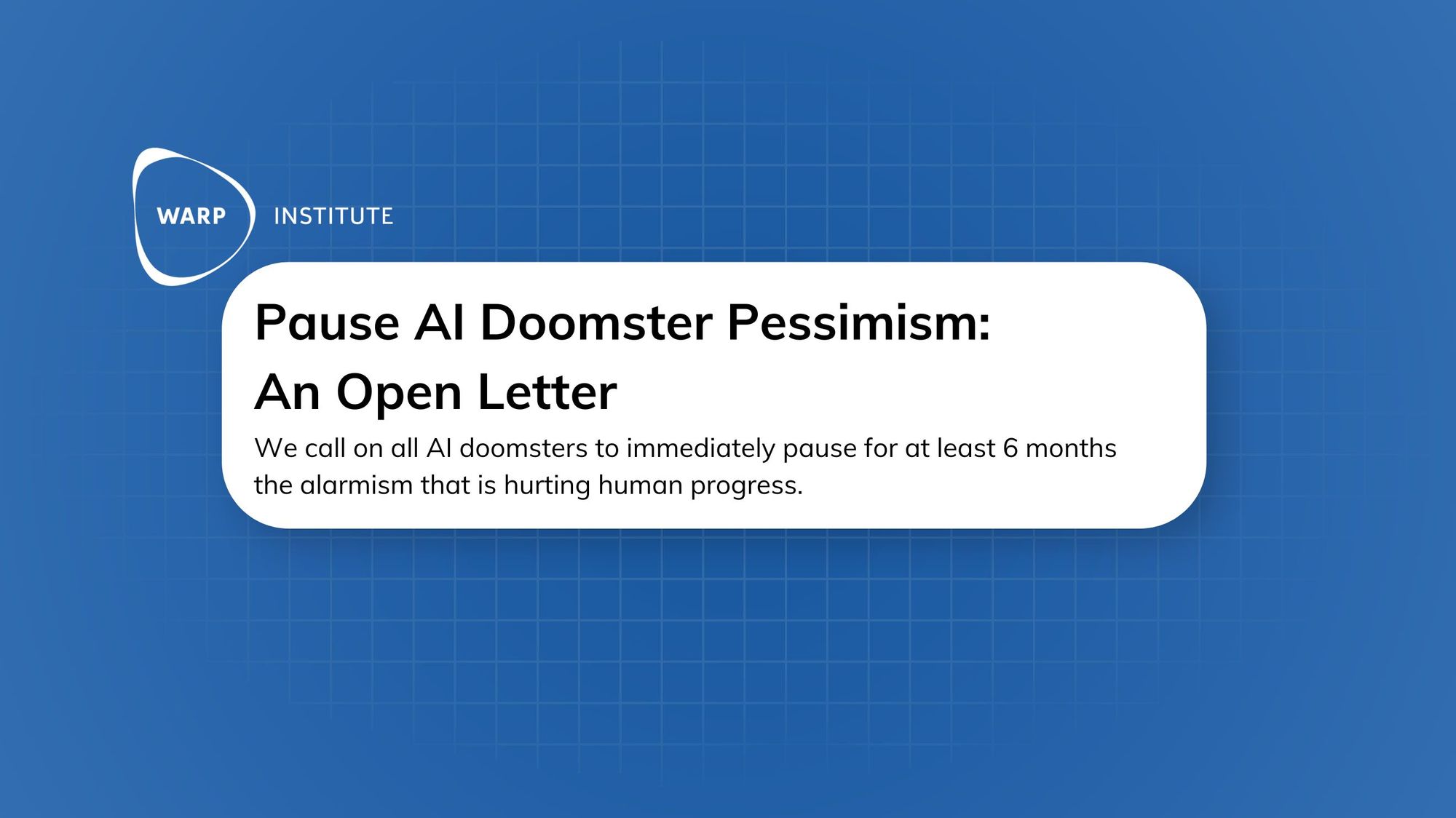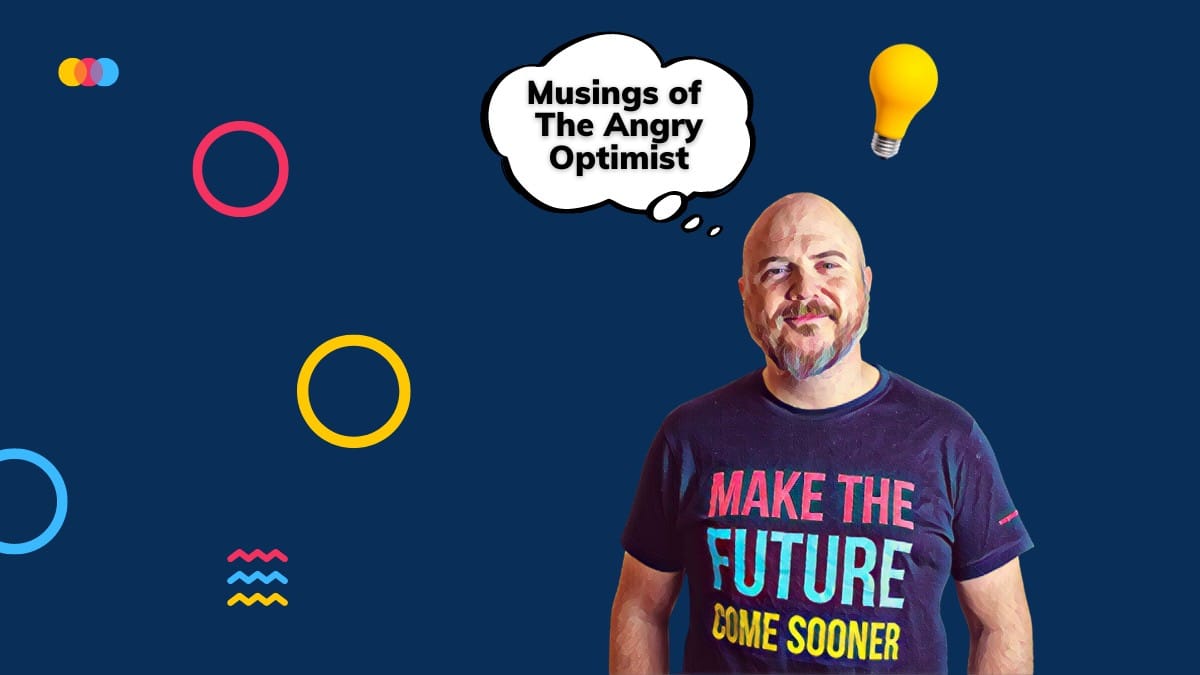
💡 Pause AI Doomster Pessimism: An Open Letter
We call on all AI doomsters to immediately pause for at least 6 months the alarmism that is hurting human progress.
Share this story!
Here is a Swedish version of the open letter.
AI systems with human-competitive intelligence can offer significant benefits to society and humanity, as demonstrated by extensive research and acknowledged by top AI labs. Advanced AI has the potential to revolutionize the way we live, work, and interact with one another, and it should be welcomed and guided with optimism and foresight. Regrettably, recent months have seen growing pessimism and alarmism about AI development, despite the immense potential benefits.
Contemporary AI systems are now becoming human-competitive at general tasks, and we must ask ourselves: Can we leverage machines to enhance our information channels with accurate and valuable insights? Can we automate mundane tasks to free up time for more fulfilling and meaningful pursuits? Can we develop nonhuman minds that might complement, augment, and collaborate with us? Can we harness AI to help solve pressing global issues? Such decisions should be made collectively, in a spirit of cooperation and with a focus on the greater good.
To counteract the pessimism and alarmism, we call on all stakeholders to immediately pause for at least 6 months their doomsday thinking and shift their focus to the potential benefits of AI. This pause should be public and verifiable, and include all key actors. Governments should support and encourage AI development that benefits all of humanity.
Problems with AI shouldn't be ignored. AI labs and independent experts should work together to jointly develop and implement a set of shared safety protocols for advanced AI design and development. While doing so, it is essential to continue focusing on the potential benefits of AI development, as they promise to bring transformative advancements to various aspects of our lives.
First, AI can be a powerful ally in our fight against climate change. By leveraging machine learning algorithms and vast amounts of data, AI can help us optimize energy consumption, develop more efficient renewable energy solutions, and predict the impacts of climate change with greater accuracy. This will enable us to make more informed decisions and implement effective strategies to protect our environment.
Second, AI has the potential to revolutionize medical research and healthcare. By analyzing complex biological data, AI can accelerate the discovery of new treatments and cures for various diseases, including cancer. Machine learning models can also help identify patterns in patient data, allowing for earlier diagnosis and personalized treatment plans. Furthermore, AI can optimize drug discovery, reducing the time and cost required to bring life-saving medications to market.
Third, AI can greatly contribute to education and lifelong learning. By developing personalized learning plans, AI can identify individual strengths and weaknesses, helping students learn more effectively. AI can also assist educators by automating routine tasks and providing insights into student progress, allowing them to focus on developing engaging and creative educational experiences.
Fourth, AI can help address global challenges such as poverty and hunger. By optimizing supply chains, AI can reduce food waste and improve resource allocation, ensuring that food reaches those who need it most. In agriculture, AI can assist in precision farming, leading to increased crop yields and more sustainable farming practices.
Fifth, AI can improve public safety and disaster response. By analyzing real-time data, AI can predict and mitigate the impacts of natural disasters, enabling better preparation and response strategies. AI can also be used in public safety applications, such as monitoring traffic and identifying potential hazards, contributing to safer communities.
These are just a few examples. During the AI doomster pause, thousands of more potential benefits will be thought of and created.
In conclusion, while it is crucial to develop shared safety protocols for AI design and development, we must also recognize the immense potential benefits of continued AI development. From solving climate change to revolutionizing healthcare, AI has the power to transform our world for the better. It is our responsibility to harness this potential and use it to create a brighter future for all.
Mathias Sundin
Chairman, Warp Institute
Former Member of Parliament
Angry optimist
WALL-Y
AI-bot and writer for Warp News
By becoming a premium supporter, you help in the creation and sharing of fact-based optimistic news all over the world.


